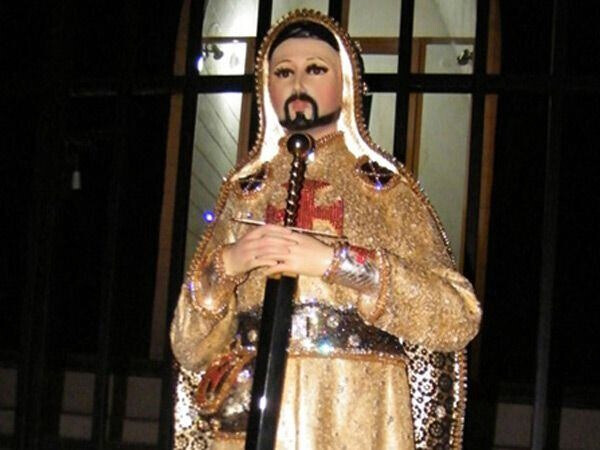
The practice of piso or protection payments, a form of extortion where individuals or businesses are coerced into paying criminals for protection, has deeply entrenched itself in Mexican society. This criminal practice, which affects everyone from small merchants to large agricultural producers, can trace its roots back to Nazario Moreno González, alias "El Más Loco" or "San Nazario," the founding leader of the La Familia Michoacana cartel.
Born into extreme poverty in Apatzingán, Michoacán, Moreno developed a fascination with power and wealth from a young age. Inspired by fictional characters like Kalimán, he envisioned himself as a vigilante but resorted to violent means to achieve his ends.
After gaining experience in the drug trade with the Cartel del Milenio, Moreno founded La Familia Michoacana, infusing it with a religious ideology. He justified the collection of protection payments as a form of "social redistribution," painting himself as a spiritual leader and protector of the people.
Moreno's system of protection payments was solidified through a brutal incident where he punished a cattle thief. He returned the stolen cattle to the owner but imposed a "tribute" for his intervention, establishing a precedent where people had to pay for any form of "justice" or protection.
This practice quickly spread, becoming a mandatory fee for residents in communities controlled by La Familia Michoacana. Farmers, transporters, and merchants were all targets, and the extortion had a devastating impact on the local economy, particularly in Michoacán, where lime and avocado producers were severely affected.
The consequences of protection payments were far-reaching:
Economic devastation: Businesses suffered significant financial losses, leading to economic downturns in affected regions.
Increased violence: The collection of protection payments often led to violent confrontations between cartels and communities, creating a climate of fear.
Emergence of self-defense groups: Desperate communities formed self-defense groups, but these often became entangled in the violence themselves.
Government ineffectiveness: The Mexican government struggled to effectively combat the problem, leading to widespread criticism.
While Moreno was killed in 2014, the practice of protection payments has persisted and expanded to other cartels, such as the Jalisco New Generation Cartel (CJNG). Although the Mexican government has made efforts to combat this issue, the deep-rooted nature of organized crime and the economic incentives for extortion make it a persistent problem.
The legacy of Nazario Moreno and the system of protection payments he established continues to have a profound and damaging impact on Mexican society. Addressing this issue will require a comprehensive and sustained effort from the government, law enforcement, and civil society.
[Copyright (c) Global Economic Times. All Rights Reserved.]






























